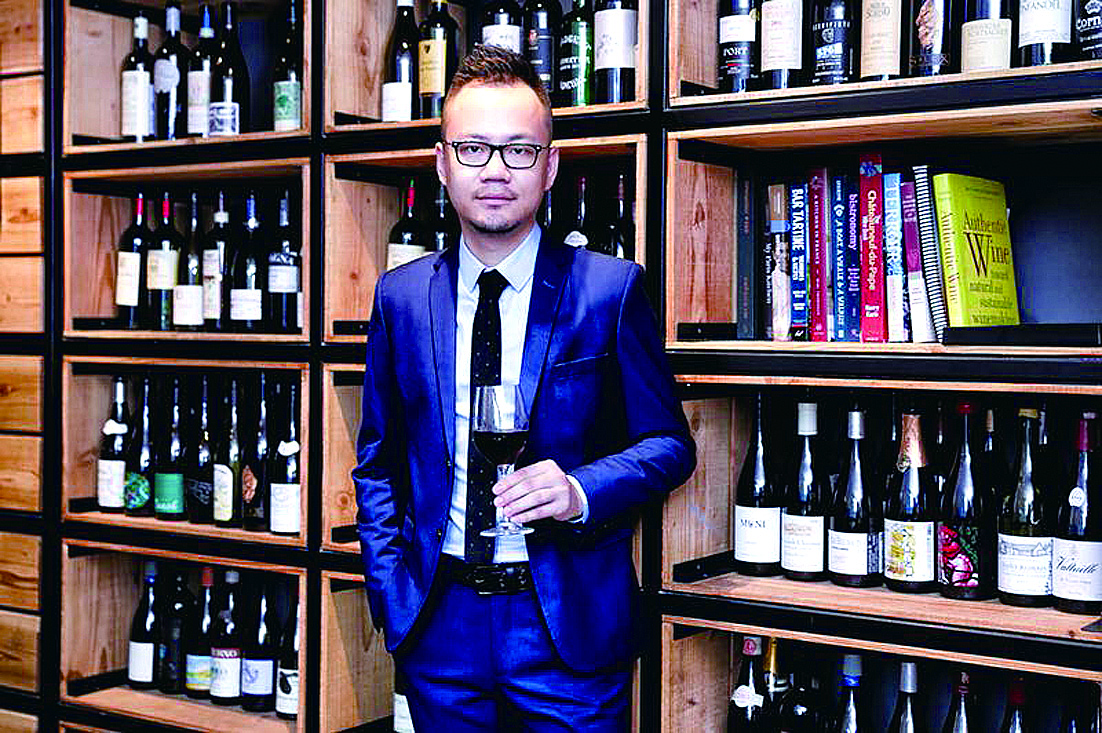Winning over the crowds with a no-frills approach


Instead of the conventional platter of cold cuts, cheese and crackers, the patrons at Vinism, a cozy bar in a quiet residential neighborhood in Shanghai, passed around pickled offals and Chinese dumplings while quaffing their wines.
Established just two years ago, Vinism is among a new breed of wine bars in Shanghai that has moved away from the conventional approach of branding wine drinking as an activity reserved for the sophisticated. Rather, its focus is on affordability, experimentation and cultural relevance.
The bar's interior decor reflects as much. Here, the atmosphere is unmistakably casual. Customers are seated on rudimentary wooden chairs. The walls are decorated with colorful motifs, photo frames and chalk boards. There is no sommelier dressed in a suit waiting to give recommendations.
The bar stocks between 60 and 70 types of wine and regularly changes its selection every month. Each glass of wine costs only between 50 and 65 yuan ($8-10). Apart from Chinese favorites like dumplings and pickled offals, the bar also offers more creative dishes such as pig ear terrine.
Wine bars were a rarity in the city a few years ago. A quick search on Dianping.com, China's largest listing site for restaurants and bars, shows that there are now more than 20 wine bars in Shanghai. Among them is XO Bar, the brick and mortar outpost of online wine delivery platform Bottles XO. Then there is II Vino, a wine bar opened by an Italian wine dealer that exclusively promotes the produce of his country. Wine drinkers with bigger wallets could be found at Roosevelt Wine Cellar, a swanky establishment on the Bund which stocks about 4,000 vintages.
"Cocktails are cheesy. Beer is for fathers. Whisky is too expensive and strong," joked Shen Sibei, the owner of Vinism, about the reasons behind the rising popularity of wine bars.
The 31-year-old native of Zhejiang province has spent most of his professional career in the wine business. He made his first bucket of gold by establishing and running one of the country's first wine education institution chains, I-WAY. By the time he sold his shares to his partners in 2015, the company had 13 outlets across China.
"In the later years of my teaching career, the most common question I got from students was where they could drink good wine, instead of what defines a good wine. And that was when I knew it was time for me to try my hand at something else," said Shen, who studied wine in a college in Burgundy, France.
Though the bar is only two years old, Shen is already planning to open a chain of Vinism bars across major Chinese cities. After all, business has been brisk —the bar currently rakes in an average of 400,000 yuan every month, an impressive amount considering the size of the establishment.
Women are the key contributors to Vinism's financial success. Shen said that about 90 percent of his regular customers are women. He noted that this ratio was similar to the one he witnessed back at his wine school.
"Women find wine especially appealing because it's unlikely that they would get drunk on it," he said.




































